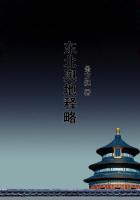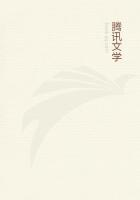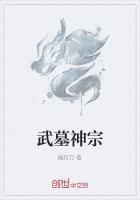"'This sister of mine,' said the Emperor, 'is a proficient Queen in the art of man training. My other sister, the Duchess of Parma, is equally scientific in breaking-in horses; for she is constantly in the stables with her grooms, by which she 'grooms' a pretty sum yearly in buying, selling, and breaking-in; while the ******ton, her husband, is ringing the bells with the Friars of Colorno to call his good subjects to Mass.
"'My brother Leopold, Grand Duke of Tuscany, feeds his subjects with plans of economy, a dish that costs nothing, and not only saves him a multitude of troubles in public buildings and public institutions, but keeps the public money in his private coffers; which is one of the greatest and most classical discoveries a Sovereign can possibly accomplish, and I give Leopold much credit for his ingenuity.
"'My dear brother Ferdinand, Archduke of Milan, considering he is only Governor of Lombardy, is not without industry; and I am told, when out of the glimpse of his dragon the holy Beatrice, his Archduchess, sells his corn in the time of war to my enemies, as he does to my friends in the time of peace. So he loses nothing by his speculations!'
"The Queen checked the Emperor repeatedly, though she could not help smiling at his caricatures.
"'As to you, my dear Marie Antoinette,' continued the Emperor, not heeding her, 'I see you have made great progress in the art of painting.
You have lavished more colour on one cheek than Rubens would have required for all the figures in his cartoons.' Observing one of the Ladies of Honour still more highly rouged than the Queen, he said, 'I suppose I look like a death's head upon a tombstone, among all these high-coloured furies.'
"The Queen again tried to interrupt the Emperor, but he was not to be put out of countenance.
"He said he had no doubt, when he arrived at Brussels, that he should hear of the progress of his sister, the Archduchess Maria Christina, in her money negotiations with the banker Valkeers, who made a good stock for her husband's jobs.
"'If Maria Christina's gardens and palace at Lakin could speak,' observed he, 'what a spectacle of events would they not produce! What a number of fine sights my own family would afford!
"'When I get to Cologne,' pursued the Emperor, there I shall see my great fat brother Maximilian, in his little electorate, spending his yearly revenue upon an ecclesiastical procession; for priests, like opposition, never bark but to get into the manger; never walk empty-handed; rosaries and good cheer always wind up their holy work; and my good Maximilian, as head of his Church, has scarcely feet to waddle into it. Feasting and fasting produce the same effect. In wind and food he is quite an adept--puffing, from one cause or the other, like a smith's bellows!'
"Indeed, the Elector of Cologne was really grown so very fat, that, like his Imperial mother, he could scarcely walk. He would so over-eat himself at these ecclesiastical dinners, to make his guests welcome, that, from indigestion, he would be puffing and blowing, an hour afterwards, for breath.
"'As I have begun the family visits,' continued the Emperor, 'I must not pass by the Archduchess Mariana and the Lady Abbess at Clagenfurt; or, the Lord knows, I shall never hear the end of their klagens.--[A German word which signifies complaining.]-- The first, I am told, is grown so ugly, and, of course, so neglected by mankind, that she is become an utter stranger to any attachment, excepting the fleshy embraces of the disgusting wen that encircles her neck and bosom, and makes her head . appear like a black spot upon a large sheet of white paper. Therefore klagen is all I can expect from that quarter of female flesh, and I dare say it will be levelled against the whole race of mankind for their want of taste in not admiring her exuberance of human craw!
"'As to the Lady Abbess, she is one of my best recruiting sergeants.
She is so fond of training cadets for the benefit of the army that they learn more from her system in one month than at the military academy at Neustadt in a whole year. She is her mother's own daughter. She understands military tactics thoroughly. She and I never quarrel, except when I garrison her citadel with invalids. She and the canoness, Mariana, would rather see a few young ensigns than all the staffs of the oldest Field-marshals!'
"The Queen often made signs to the Emperor to desist from thus exposing every member of his family, and seemed to feel mortified; but the more Her Majesty endeavoured to check his *******, and make him silent, the more he enlarged upon the subject. He did not even omit Maria Theresa, who, he said, in consequence of some papers found on persons arrested as spies from the Prussian camp, during the seven years' war, was reported to have been greatly surprised to have discovered that her husband, the Emperor Francis I., supplied the enemy's army with all kinds of provision from her stores.
"The King scarcely ever answered excepting when the Emperor told the Queen that her staircase and antechamber at Versailles resembled more the Turkish bazars of Constantinople [It was an old custom, in the passages and staircase of all the royal palaces, for tradespeople to sell their merchandise for the accommodation of the Court.] than a royal palace. 'But,' added he, laughing, 'I suppose you would not allow the nuisance of hawkers and pedlars almost under your nose, if the sweet perfumes of a handsome present did not compensate for the disagreeable effluvia exhaling from their filthy traffic.'
"On this, Louis XVI., in a tone of voice somewhat varying from his usual mildness, assured the Emperor that neither himself nor the Queen derived any advantage from the custom, beyond the convenience of purchasing articles inside the palace at any moment they were wanted, without being forced to send for them elsewhere.














